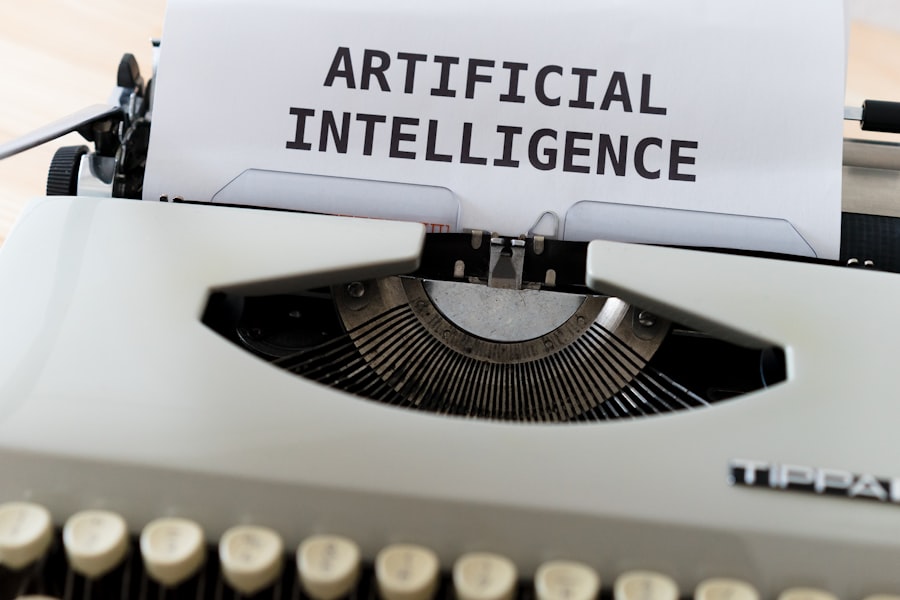Customer Relationship Management (CRM) has evolved significantly over the years, and with the integration of Artificial Intelligence (AI), it has become even more powerful. AI has revolutionized the way businesses interact with their customers, allowing for more personalized and efficient communication. One of the most exciting developments in CRM AI is the use of reinforcement learning and adaptive algorithms, which have the potential to transform the way businesses manage their customer relationships. This article will explore the evolution of SMS-iT CRM’s reinforcement learning and adaptive algorithms, the benefits they offer, the role they play in enhancing CRM AI, as well as the challenges and limitations of implementing cutting-edge CRM AI. Additionally, we will discuss the future of CRM AI and the opportunities and innovations that lie ahead.
Key Takeaways
- CRM AI utilizes artificial intelligence to enhance customer relationship management
- SMS-iT CRM has evolved to incorporate reinforcement learning and adaptive algorithms
- Reinforcement learning in CRM AI leads to improved decision-making and personalized customer experiences
- Adaptive algorithms play a crucial role in enhancing CRM AI by continuously learning and adapting to new data
- Implementing cutting-edge CRM AI technology poses challenges such as data privacy and ethical considerations
- The future of CRM AI holds opportunities for innovation and improved customer engagement
- SMS-iT CRM’s cutting-edge technology is set to have a significant impact on the future of CRM AI
The Evolution of SMS-iT CRM’s Reinforcement Learning and Adaptive Algorithms
SMS-iT CRM has been at the forefront of incorporating cutting-edge technology into its CRM platform. One of the most significant advancements has been the integration of reinforcement learning, a type of machine learning where an agent learns to make decisions by taking actions in an environment to achieve maximum cumulative reward. This allows the CRM system to continuously learn and improve its decision-making processes based on feedback from customer interactions. Additionally, SMS-iT CRM has implemented adaptive algorithms that can adjust and optimize their behavior based on changing customer data and market dynamics. These algorithms enable the CRM system to adapt to new information and make real-time adjustments to improve customer interactions and satisfaction.
SMS-iT CRM’s reinforcement learning and adaptive algorithms have evolved to provide businesses with a more intelligent and responsive CRM system. By continuously learning from customer interactions and adapting to changing circumstances, these algorithms enable businesses to provide more personalized and effective customer experiences. This evolution has positioned SMS-iT CRM as a leader in leveraging AI to enhance customer relationships and drive business growth.
The Benefits of Reinforcement Learning in CRM AI
Reinforcement learning offers several key benefits in the context of CRM AI. Firstly, it allows the CRM system to learn from experience, enabling it to make more informed decisions based on past interactions with customers. This leads to more personalized and effective communication, as the system can tailor its responses based on individual customer preferences and behaviors. Additionally, reinforcement learning enables the CRM system to optimize its actions over time, leading to improved customer satisfaction and loyalty.
Furthermore, reinforcement learning can help businesses identify patterns and trends in customer behavior that may not be immediately apparent. By continuously analyzing customer interactions, the CRM system can uncover valuable insights that can be used to inform marketing strategies, product development, and overall business decision-making. Ultimately, the use of reinforcement learning in CRM AI can lead to more efficient and effective customer relationship management, driving business success and growth.
The Role of Adaptive Algorithms in Enhancing CRM AI
Adaptive algorithms play a crucial role in enhancing CRM AI by enabling the system to adjust and optimize its behavior in response to changing circumstances. These algorithms allow the CRM system to adapt to new information, such as changes in customer preferences or market trends, and make real-time adjustments to improve customer interactions. By continuously analyzing and processing data, adaptive algorithms enable the CRM system to stay responsive and relevant in a dynamic business environment.
Moreover, adaptive algorithms can help businesses stay ahead of the competition by enabling them to quickly adapt to changing market conditions and customer needs. This flexibility allows businesses to maintain a competitive edge by providing more personalized and relevant customer experiences. Additionally, adaptive algorithms can help businesses identify new opportunities for growth and innovation by uncovering patterns and insights in customer data that may have been overlooked.
Challenges and Limitations of Implementing Cutting-Edge CRM AI
While the integration of cutting-edge technology such as reinforcement learning and adaptive algorithms offers significant benefits, it also presents challenges and limitations. One of the primary challenges is the complexity of implementing these advanced technologies into existing CRM systems. Businesses may face technical hurdles in integrating reinforcement learning and adaptive algorithms into their CRM platforms, requiring significant resources and expertise.
Additionally, there may be concerns around data privacy and security when implementing advanced AI technologies in CRM systems. Businesses must ensure that they are compliant with data protection regulations and that customer data is handled responsibly and ethically. Furthermore, there may be challenges in effectively training and managing AI-powered CRM systems, as they require ongoing monitoring and maintenance to ensure optimal performance.
The Future of CRM AI: Opportunities and Innovations

Looking ahead, the future of CRM AI holds exciting opportunities for innovation and growth. As technology continues to advance, we can expect to see even more sophisticated AI capabilities integrated into CRM systems. This includes advancements in natural language processing, sentiment analysis, and predictive analytics, which will enable CRM systems to understand and respond to customer needs with greater accuracy and efficiency.
Furthermore, the future of CRM AI will likely see increased integration with other emerging technologies such as Internet of Things (IoT) devices and virtual reality, creating new opportunities for businesses to engage with customers in innovative ways. These advancements will enable businesses to create more immersive and personalized customer experiences, driving greater satisfaction and loyalty.
The Impact of SMS-iT CRM’s Cutting-Edge Technology on the Future of CRM AI
In conclusion, SMS-iT CRM’s integration of reinforcement learning and adaptive algorithms has significantly advanced the capabilities of CRM AI. These technologies offer numerous benefits, including more personalized customer interactions, improved decision-making processes, and valuable insights into customer behavior. While there are challenges and limitations associated with implementing cutting-edge CRM AI, the future holds promising opportunities for innovation and growth.
As businesses continue to leverage AI to enhance customer relationships, SMS-iT CRM’s cutting-edge technology will play a pivotal role in shaping the future of CRM AI. By staying at the forefront of technological advancements and embracing innovation, SMS-iT CRM is well-positioned to drive continued success for businesses seeking to optimize their customer relationship management strategies. With its commitment to leveraging advanced AI capabilities, SMS-iT CRM is poised to lead the way in shaping the future of CRM AI and revolutionizing the way businesses engage with their customers.
For more information on the cutting-edge technology being utilized by SMS-iT CRM, check out their article on maximizing customer relationships with SMS-iT. This comprehensive guide to effective CRM provides valuable insights into how SMS-iT is revolutionizing customer relationship management through advanced algorithms and reinforcement learning. https://blog.smsit.ai/2024/03/18/maximizing-customer-relationships-with-sms-it-a-comprehensive-guide-to-effective-crm/
FAQs
What is CRM AI?
CRM AI, or Customer Relationship Management Artificial Intelligence, refers to the use of artificial intelligence technology within CRM systems to automate and improve customer interactions, data analysis, and decision-making processes.
What are reinforcement learning and adaptive algorithms in CRM AI?
Reinforcement learning is a type of machine learning where an algorithm learns to make decisions by taking actions in an environment to achieve a specific goal. Adaptive algorithms, on the other hand, are algorithms that can change and improve their behavior over time based on new data and experiences.
How does SMS-iT CRM use reinforcement learning and adaptive algorithms in their CRM AI?
SMS-iT CRM utilizes reinforcement learning and adaptive algorithms to continuously learn from customer interactions and data, allowing the system to adapt and improve its decision-making processes over time. This results in more personalized and effective customer engagement.
What are the benefits of using reinforcement learning and adaptive algorithms in CRM AI?
By using reinforcement learning and adaptive algorithms, CRM AI systems can better understand and predict customer behavior, personalize interactions, and optimize business processes. This leads to improved customer satisfaction, increased sales, and more efficient operations.







